Easy Flatbread Recipe
Updated Jun 29, 2025
Flatbread recipe to make at home in a skillet. All you need is instant yeast, flour, and a few other ingredients, each piece only takes 5 minutes to cook!
This post may contain affiliate links. Please read our disclosure policy.
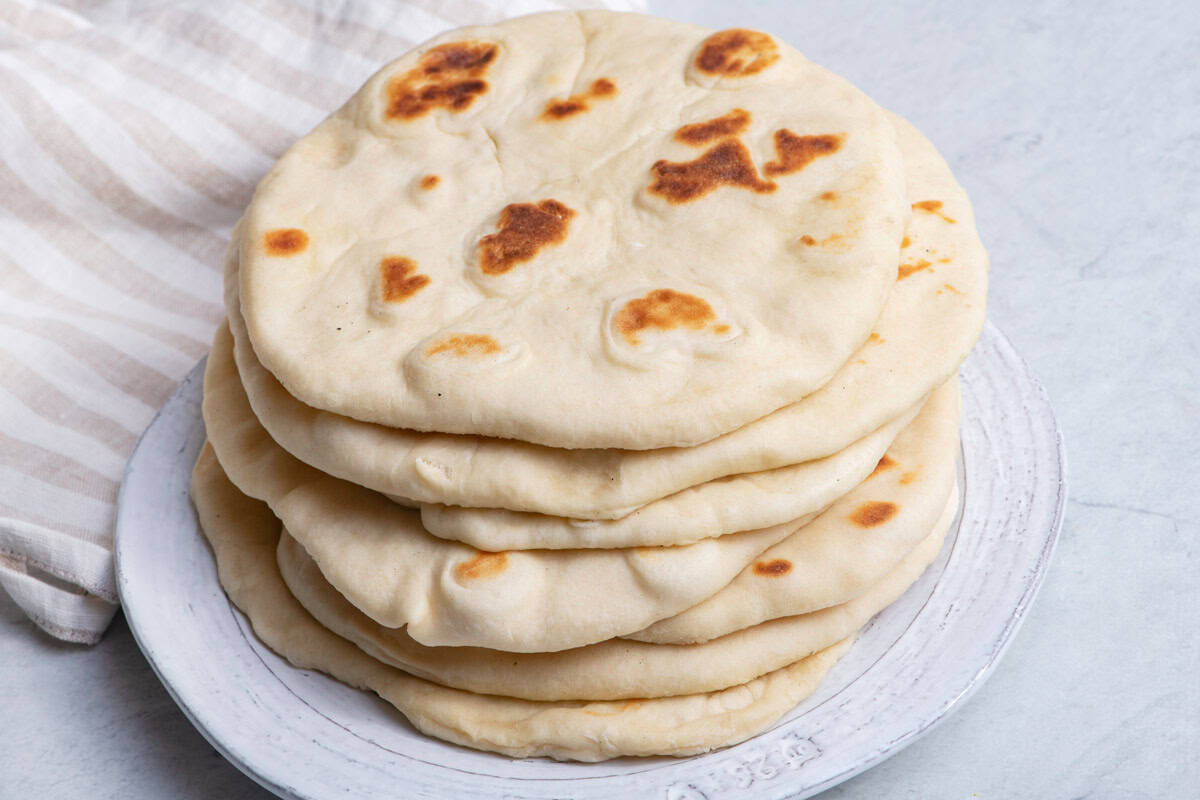
Jump to Section
I love Homemade flatbread!

Flatbread is basically a part of who I am. Being Middle Eastern, I grew up with it always on the table, and honestly, I wouldn’t have it any other way. I love all kinds, but this homemade flatbread recipe is the one I reach for most when I want that warm, soft, chewy goodness fresh off the skillet. It’s simple, reliable, and way better than store-bought. If you’ve never tried making your own, this is a flatbread recipe that’s easy to pull off and worth every minute.
Happy Cooking!
– Yumna
Flatbread Ingredients
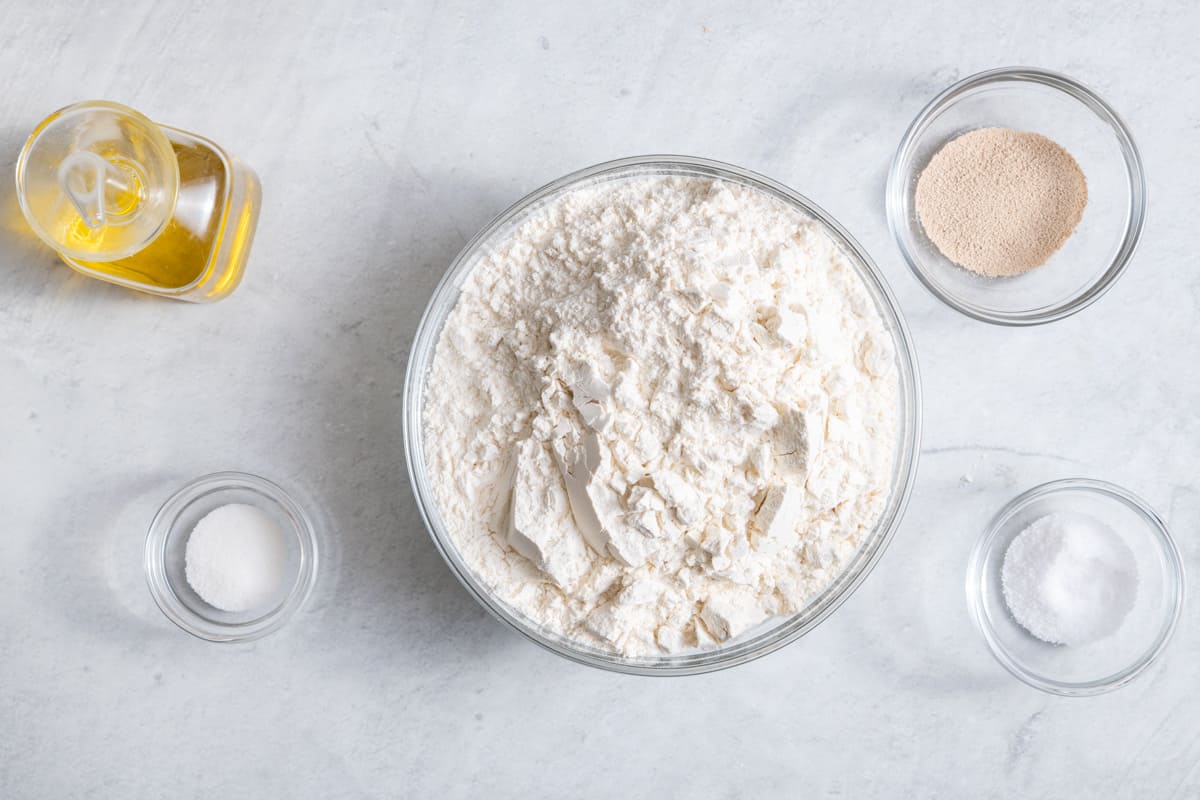
- Flour: Use all-purpose flour to keep things easy and accessible. You could also use bread flour or mix in some whole wheat flour, but you might need to add a little more water.
- Instant Yeast: This recipe was developed using instant yeast which works differently than active dry yeast.
- Sugar: If you prefer, use honey or agave sweetener. Just don’t skip as it helps activate the yeast.
- Olive oil: Olive oil is traditional but vegetable oil or even melted butter can be used instead.
- Salt: Salt brings out the flavors of all the other ingredients. You can also add ½ teaspoon of dried herbs like rosemary, oregano or thyme when you add the salt.
- Warm water: Make sure your water is not too hot or too cold. Instant yeast does need slightly warmer water (around 120°F to 130°F) to get started. If your water is too hot, it will kill the yeast, and colder water won’t activate it.
How to Make Homemade Flatbread
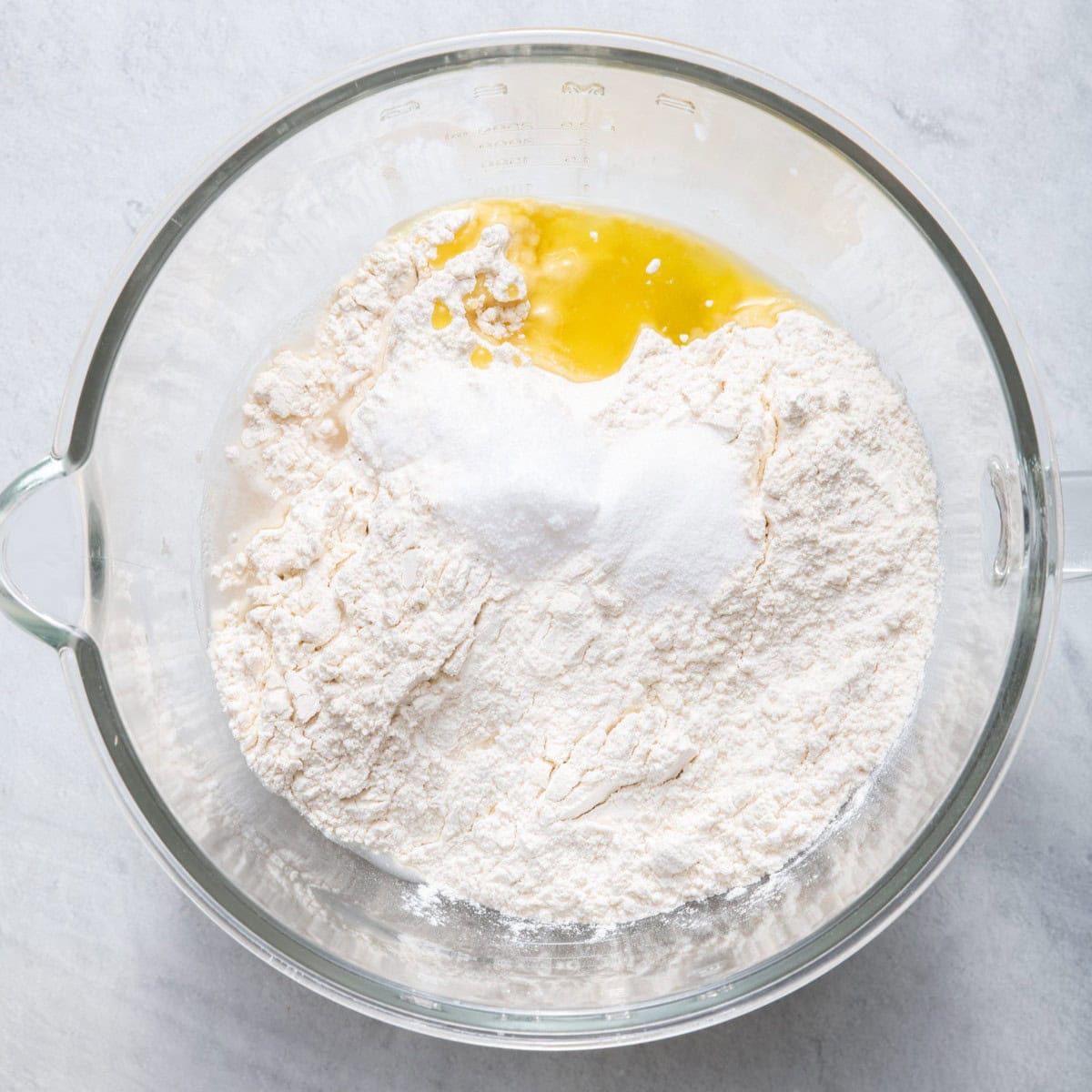
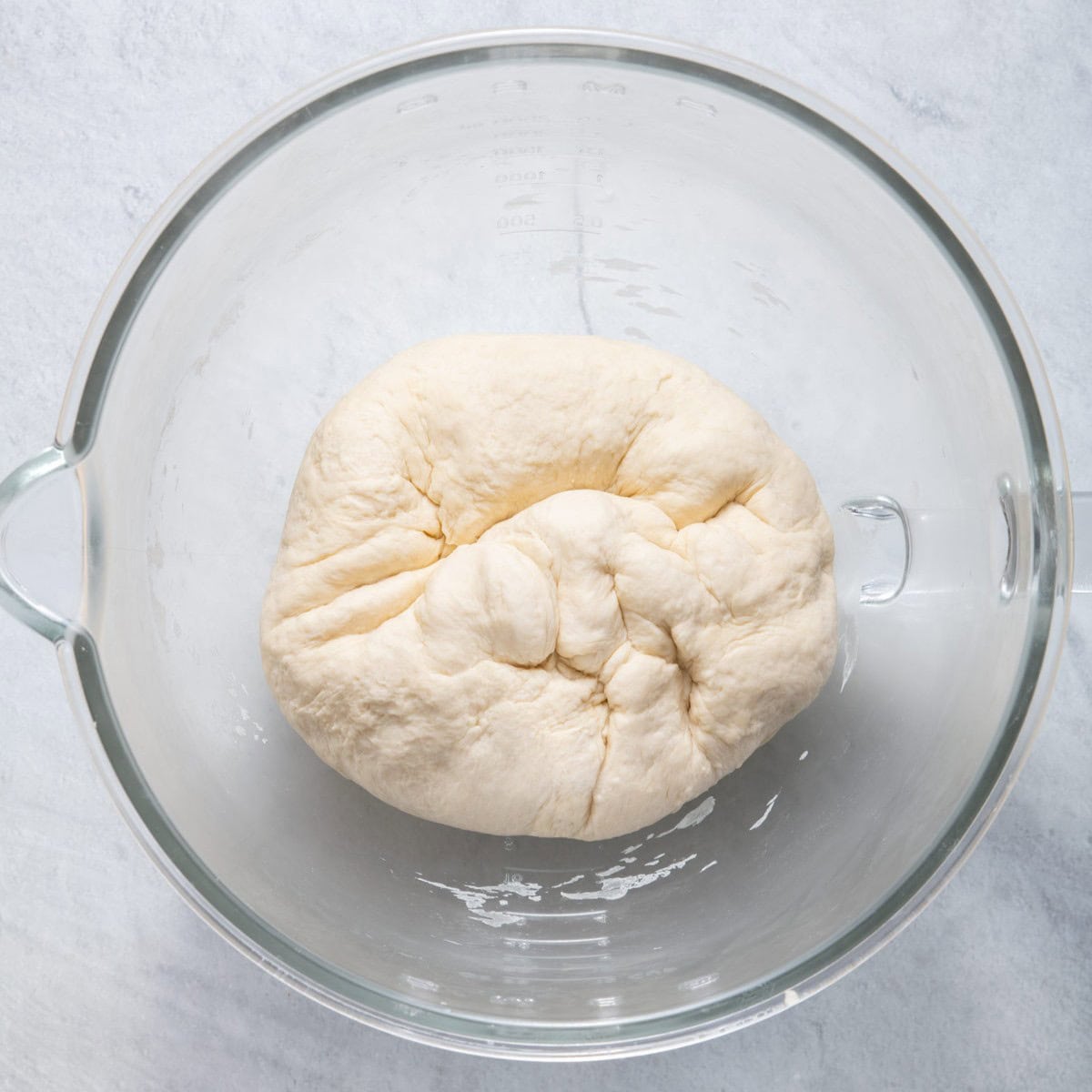
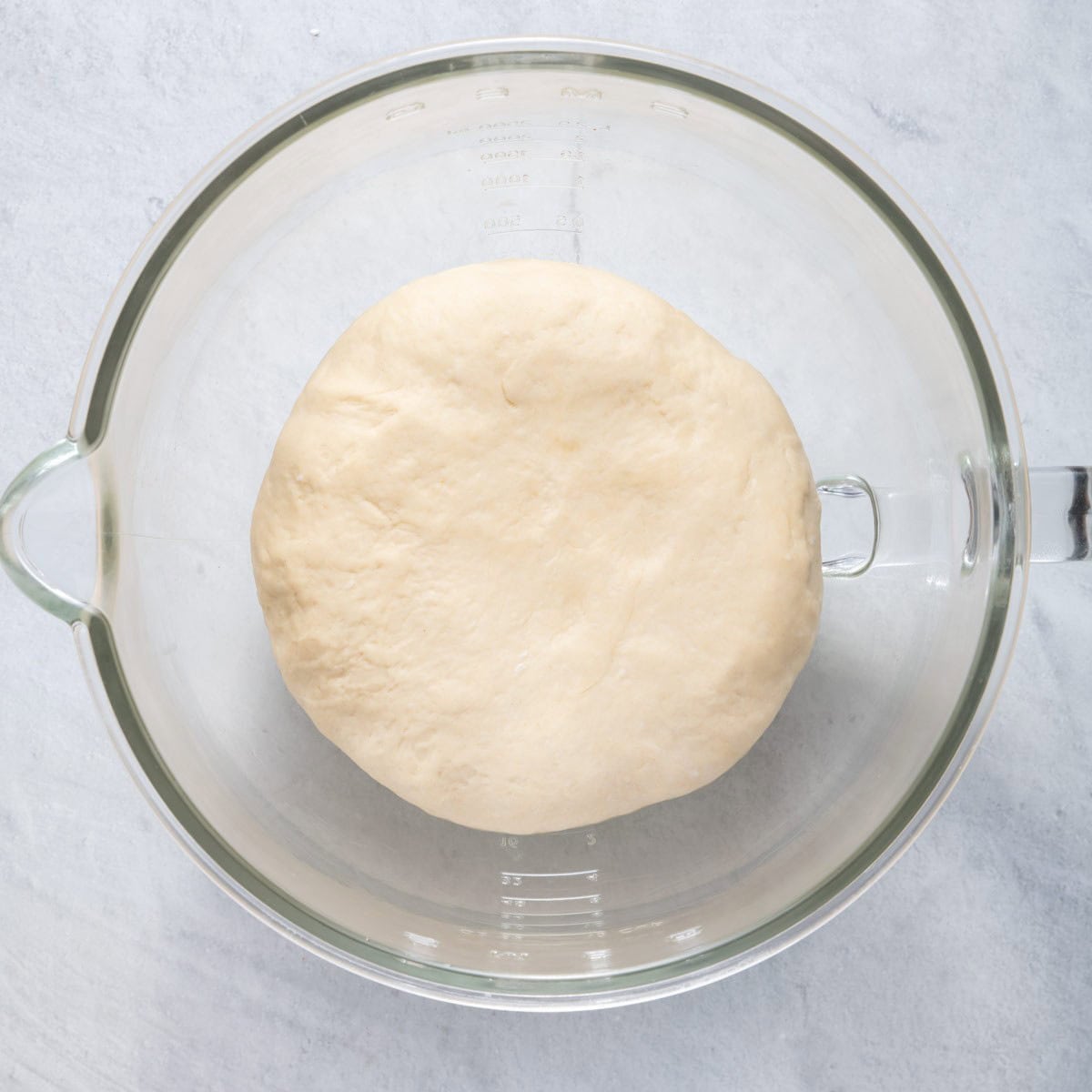
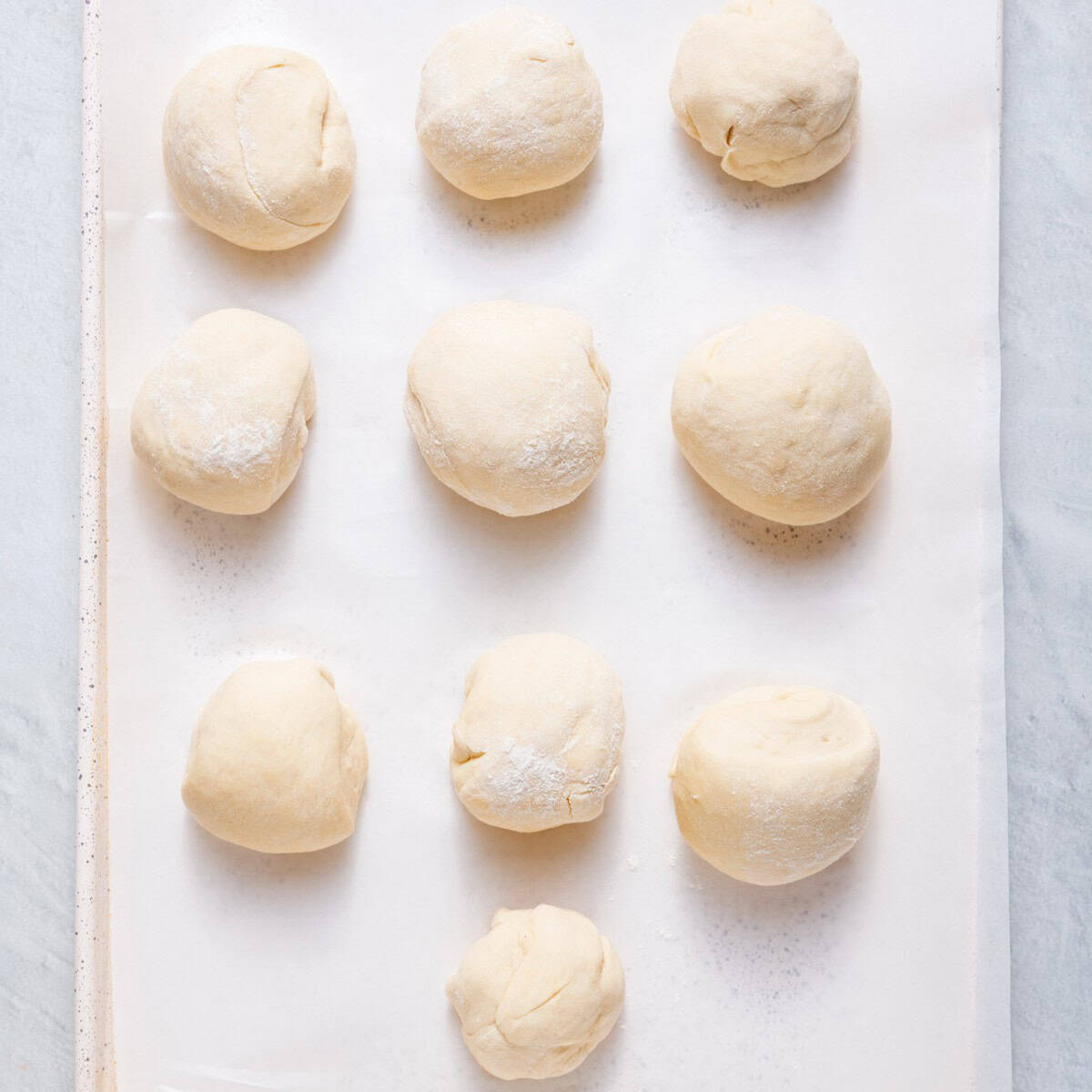
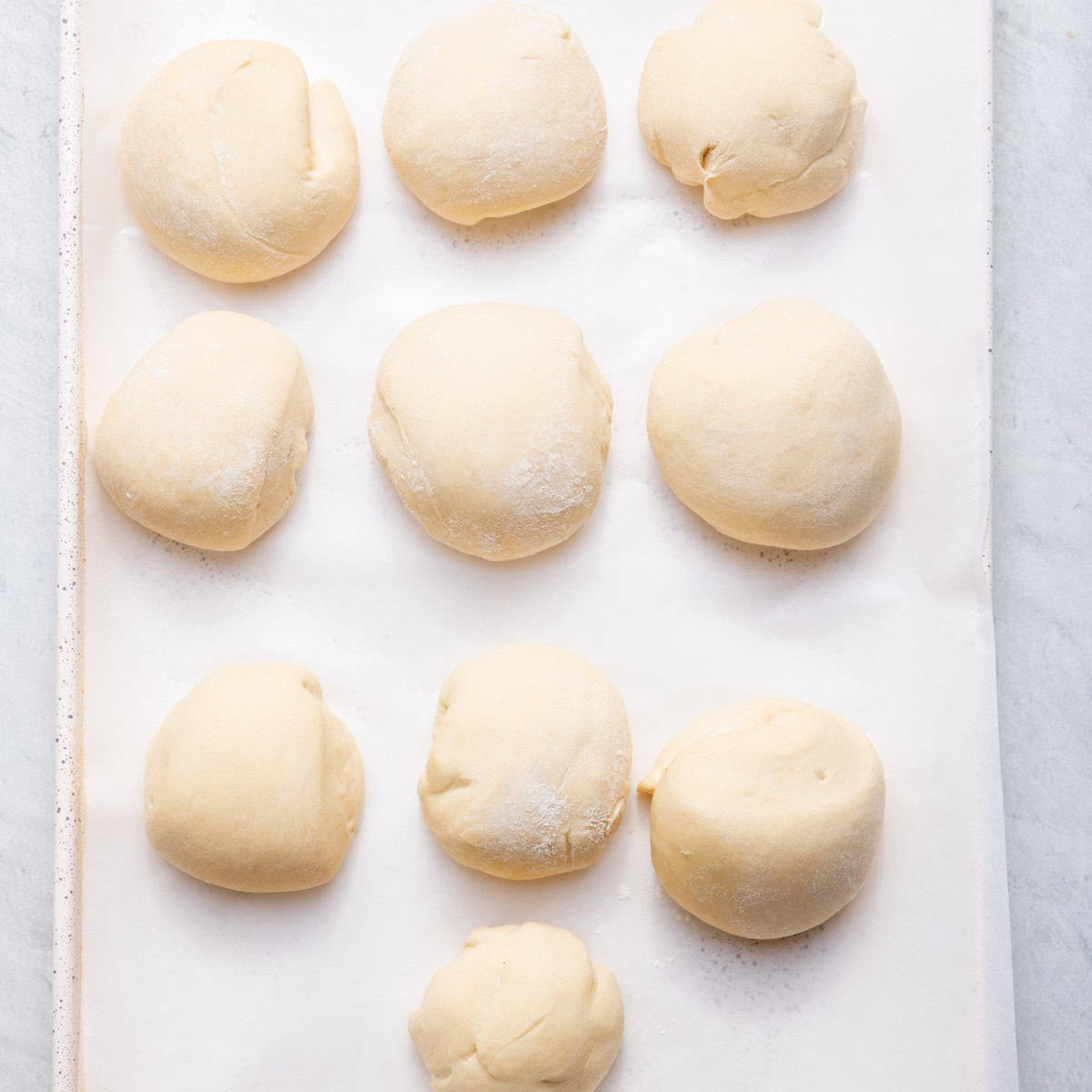
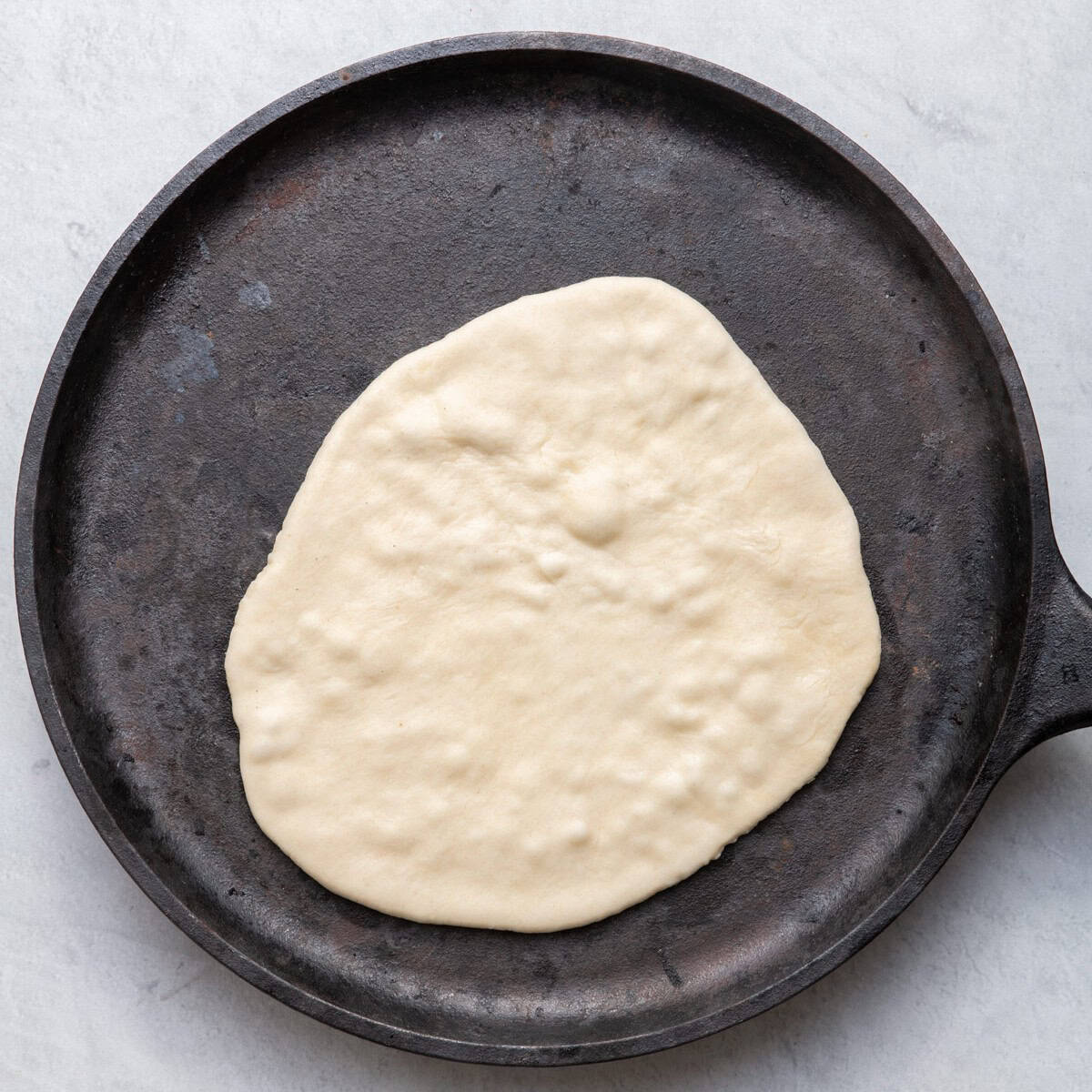
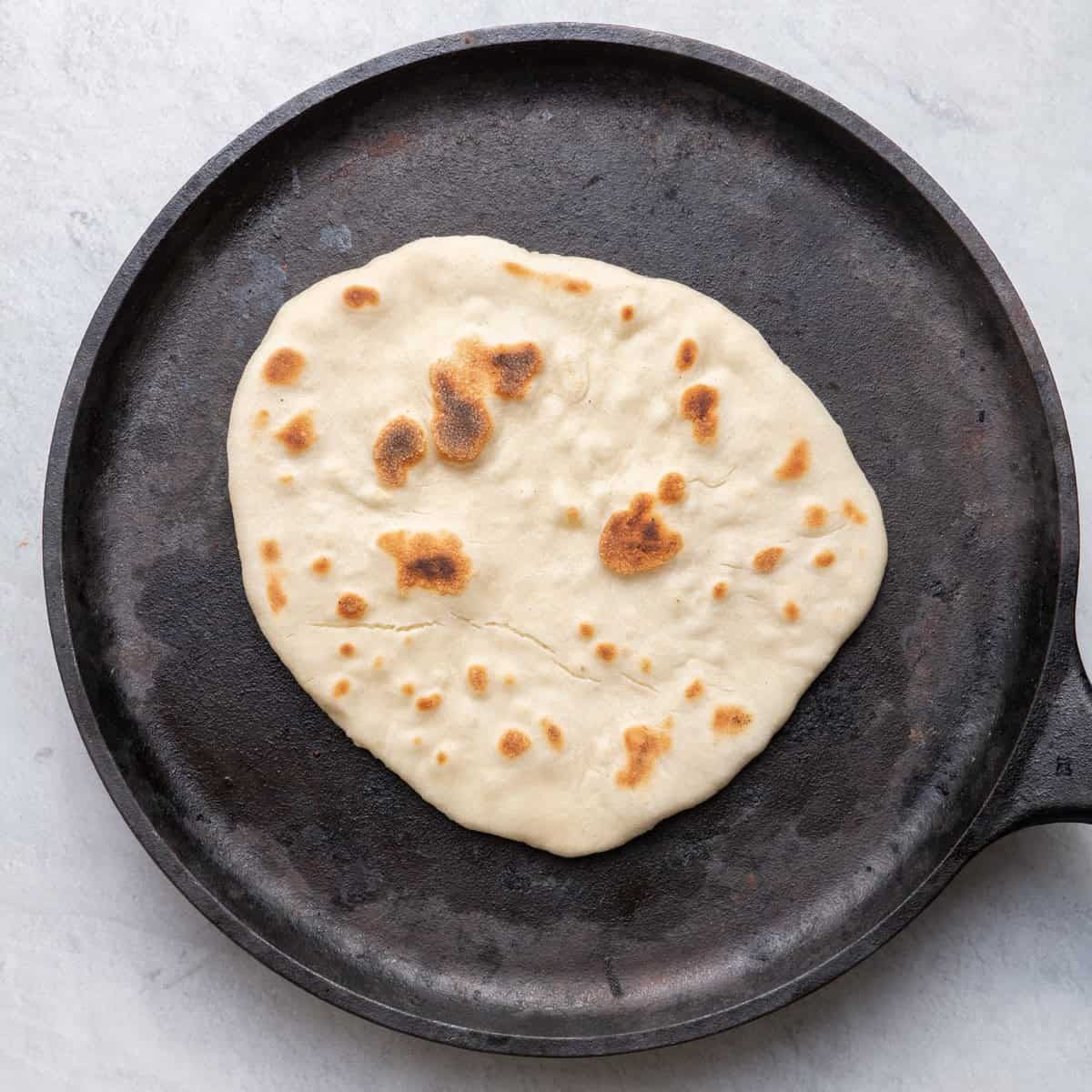
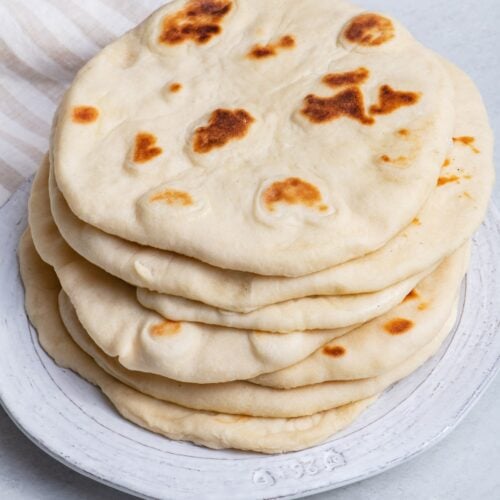
Homemade Flatbread Recipe
Video
Ingredients
- 4 cups all-purpose flour plus more for dusting
- 1 teaspoon granulated sugar
- 2 ¼ teaspoons instant yeast 1 packet
- 1 ½ cups warm water
- 2 tablespoons olive oil plus more for brushing
- 2 teaspoons salt
Instructions
- Combine all ingredients in the bowl of a stand mixer. Mix on low with the dough hook for 2 minutes. Then increase speed to medium/low speed for 6 minutes
- Remove the dough and lightly grease the bowl. Place the dough back into the bowl, cover with a kitchen towel and let rise until doubled, about 30 minutes.
- Remove the dough and divide into 10 equal pieces and reshape into small round balls. Lightly dust the dough balls with flour and transfer to a rimmed baking sheet. Cover with a kitchen towel and let stand for 20 minutes.
- Heat a cast iron skillet or another non-stick skillet over medium heat with olive oil.
- Roll out one of the dough balls using a rolling pin to a 7-8 inch circle and carefully transfer it to the skillet.
- Cook for 2 minutes or until the top surface is covered with bubbles, then flip and cook until the dough is lightly golden on the bottom, about 2 more minutes.
- Remove from pan and cover with a kitchen towel to keep warm while repeating with the rest of the dough. Serve with your favorite toppings or fillings.
Notes
Nutrition
Nutrition information provided is an estimate. It will vary based on cooking method and specific ingredients used.
How to Make Flatbread (Video Tutorial)
Recipe Tips
- Don’t rush the rise. Although this is a quick bread, make sure to calculate the total time you need for all the steps, so the dough rises well with the proper amount of time.
- Use parchment paper to help transfer the flatbreads to the skillet. This is a great trick I learned that helps maintain the shape of the flatbread so you’re not trying to lift them with your hands and transfer them to a hot skillet quickly.
- Make sure your pan or griddle is hot. The cook time is very short. You want the pan hot enough that is cooks on one side in about 30 seconds to 1 minute. If it’s not hot enough, the bread may dry out.
- Cover the flatbread with a towel immediately after cooking. This keeps it warm and soft as well as prevents a tough dry crust.
- Knead the dough by hand. If you don’t have a stand mixer, you can use a flat wooden spoon to mix the ingredients. Then turn the dough onto a well-floured surface and knead until smooth. It will take about 10 minutes to do it by hand.
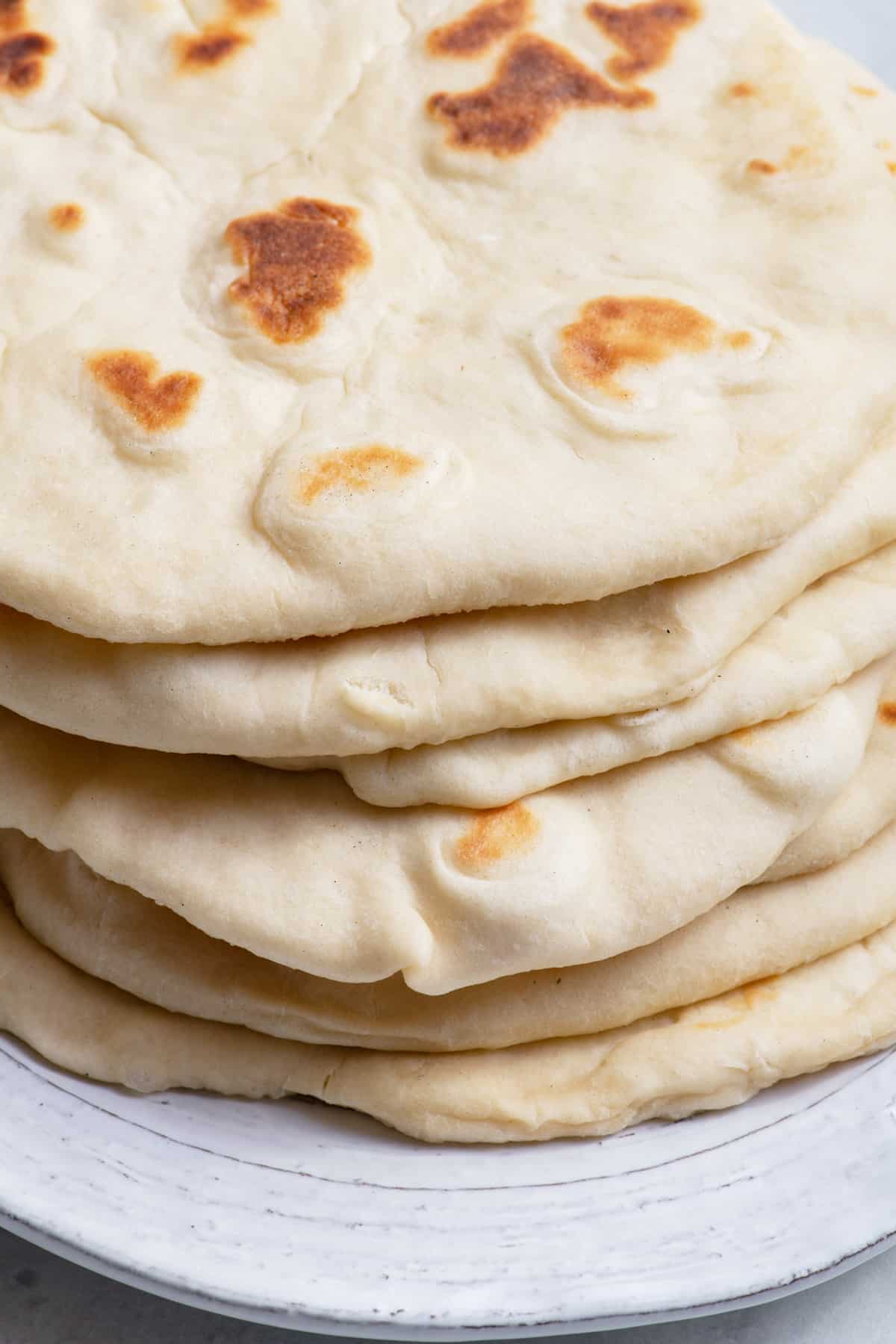
Serving Ideas
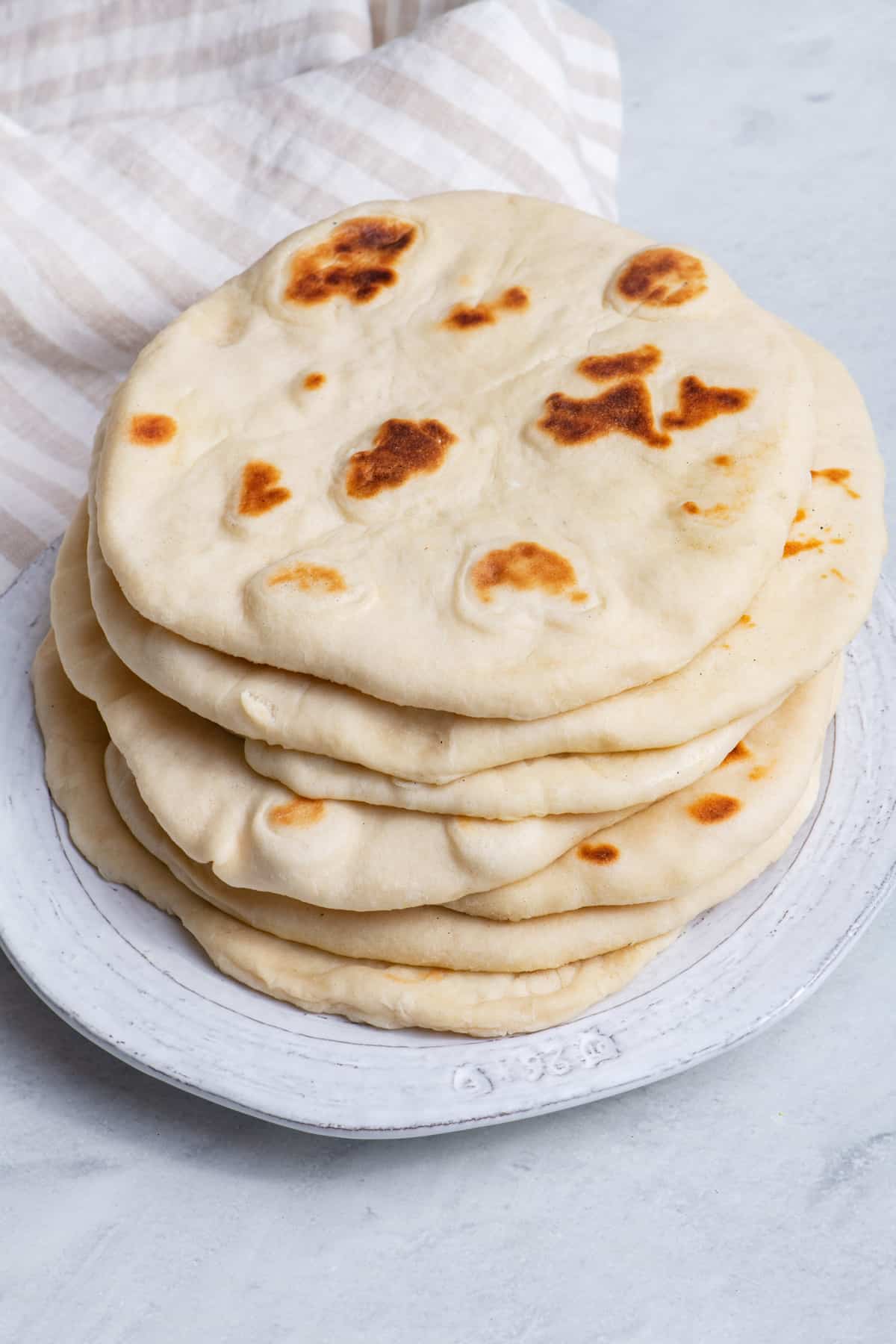






Comments
I don’t see the video on here under where it says video. Could have really used it to check if my dough was correct. I ended up adding ~1/3 C more flour at the end bc it was a sticky, goopy mess, but I think that may have overprocessed my dough a bit.
Also, I think I should have done 2 or more pans at a time bc doing one at a time made the rest of them over-proof, I believe.
I did spray a fine mist of water on the balls as they were feeling a bit dry, again after I rolled them out, and again when I put them on the pan (dryer side down- the side that was on the sheet after separating them up). This was the only way I could get any bubbles to form while cooking.
The breads came out a bit dense, more like actual bread than naan, but the flavor was good, and the recipe was fairly easy for bread, despite some questions along the way. There’s def a learning curve here (as with all bread, I believe) and I think the next batch will turn out better. This has also encouraged me to try my hand at sourdough again.
Hi Ewa! Hmm, the video is working on my end. You should be able to find it under “How to Make Flatbread (Video Tutorial)” in the post and “Video” in the actual recipe card. Can you try checking again to see if either one will play for you now? Adding that extra 1/3 cup of flour is likely what made your flatbread so dense. Next time, try adding a little bit of oil to the dough as you’re kneading it and make sure to lightly grease the bowl before you add the dough to rise. You may find it helpful to also add a bit of flour to your working surface. Did you make sure to keep the dough balls covered with a towel before cooking, too? That helps keep them from drying out and will work much better than misting with water. Hope that helps!
Followed this exactly, step by step and the dough never rose. Not sure what’s happening here but tried it twice.
Oh no, so sorry to hear your dough didn’t rise. It’s likely your yeast wasn’t active enough. This can happen for many reasons—your yeast could’ve been too old, the water temperature could have too hot, the dough could’ve been too cold while proofing, or it could have needed more kneading to develop the gluten. Do you think it may have been one of those issues?
Make sure your water is 120-130°F. That’s what my yeast packets said, and I had to microwave my hottest tap water for about 45 seconds to get it there. If you don’t have a thermometer, when you touch it, you’ll probably think it is hot, but you’ll still be able to comfortably leave your finger submerged.
Don’t be discouraged! Breads are not as easy as people make them seem, but the more you try, the more you learn!
Only one problem they are so good all my friends keep asking me for them. Perfect in the freezer. Thank you
Aww, what a great problem to have!! So happy you and your friends love them! Thanks, Susan!!
This recipe was easy and quick for flatbread & came out perfect. I will definitely make again.
Yay, so happy you found it easy!! Glad it turned out perfect! Thank you!!
My house is either too hot or lets all the cold in, so I proofed this in my instant pot. It’s working so perfect, I can’t wait to make more bread this winter.
Amazing! What a great trick, so happy it worked!
See All Comments